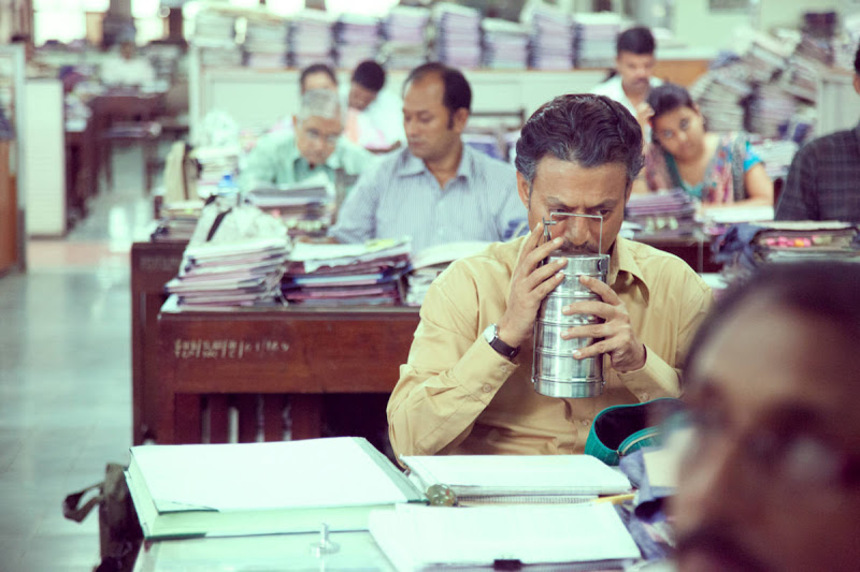Review: THE LUNCHBOX Is An Exquisite Ode To Love And Longing

Set amid Bombay's dabbawallas--who deliver thousands of lunchboxes sent by Bombay housewives to their husbands at the office--Dabba is about an old-fashioned, but contemporary romance that grows entirely through notes in the lunchbox. It features Irrfan Khan (Life of Pi), Nimrat Kaur (Peddlers; which was at Cannes) and Nawazuddin Siddique (Gangs of Wasseypur, Cannes). A wrongly delivered lunchbox connects Saajan Fernandes (Khan), a dour insurance man and widower who is about to retire, with Ila (Kaur), a young mother whose husband is unfaithful. They secretly share confidences, until they decide to meet. Batra's screenplay cleverly plays on the suspense of whether they will get together in the end, shoring up his story with subplots with emotional heft, including the pesky office guy Shaikh (Siddique), to whom Fernandes unexpectedly becomes family. Many women, trapped in dead-end relationships, find redemption, including Ila's neighbour--a wonderfully feisty Bharati Achrekar, only heard, never seen.
The film has many funny and thoughtful observations ("We forget things, if we have no one to tell them to"). In linking the Hindu Ila with the Christian Fernandes and the Muslim Shaikh, Batra also explores Mumbai's cosmopolitanism and ambiguous modernity: Shaikh lives with his Muslim girlfriend, yet she will marry only with her dad's permission.
Khan, Kaur and Siddique deliver first-rate, nuanced performances. The cinematography wonderfully captures the rhythms of Mumbai's people and their emotional lives, and the editing keeps a gentle pace. The music offers a rousing finale with the dabbawallas' prayers over the staccato of the train's wheels. Some may be disappointed by the ambiguous end. Yet, it is imbued with a poignancy that lingers, along with the lovely line: sometimes, even the wrong train can take you to the right destination
.
 Meenakshi Shedde is India Consultant to the Berlin and Dubai Film Festivals, and Curator to festivals worldwide. Her email is meenakshishedde@gmail.com
Meenakshi Shedde is India Consultant to the Berlin and Dubai Film Festivals, and Curator to festivals worldwide. Her email is meenakshishedde@gmail.com
Do you feel this content is inappropriate or infringes upon your rights? Click here to report it, or see our DMCA policy.






